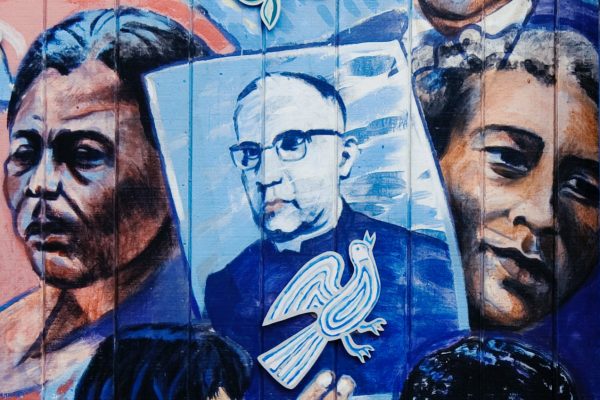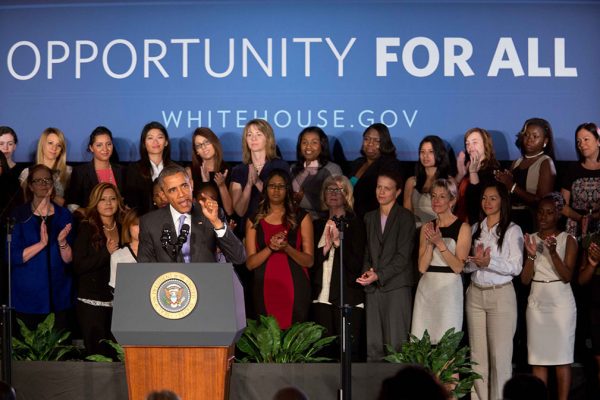As Aziz Rana aptly notes, freedom talk can be hard to swallow at present—but not just in the United States. If a political party calls itself the “Freedom Party”—whether in Israel, Austria, the Netherlands, South Africa, or Ukraine—you can bet that it is on the far right. Rana is also correct, I think, that we should not “abandon” freedom to the right. But what exactly should a left “language of freedom” entail? Rana’s answer—“self-rule”—exemplifies the most common response on the left: that the freedom claimed by the right, the individualistic freedom from interference by other people or the state, is not really freedom at all. Real freedom is democratic self-determination, or collective and solidaristic control of our common life.
I think this type of response is a mistake, for two basic reasons. The first is conceptual. If freedom is to mean anything, it must be separated from the use to which it is put. The way this point is typically made on the right is that freedom is not identical to virtue but is a prerequisite for it; the idea is that you cannot act virtuously if you do not freely choose to do so. In similar fashion, for collective and solidaristic self-rule—the left equivalent of virtue—to be possible and valuable, you must be free to fail to determine or rule yourself. To be free is to have a set of possibilities open to you, and to be able to choose from among them, even if that means choosing poorly.
The effort to construct a more “positive” theory of freedom collapses this distinction, identifying freedom with undertaking certain activities, like creative labor or active citizenship. In other words, theories that interpret freedom as self-determination, self-rule, or self-realization are not really theories of freedom at all, but rather theories of how freedom should be used.
The second reason is political. Self-rule can be given an expansive meaning, as in the emancipatory struggles of the oppressed fighting for self-determination. But as Rana traces, the concept of self-rule has often been weaponized against such movements by those with massive economic and political power. The dominating class portrays itself as a victim of tyrannical encroachment, while at the same time attributing to the dominated both the freedom to act as they wish and the responsibility to bear the punishment meted out by the shock troops of the status quo.
Thus Seneca, the imperial moralist par excellence, wrote of “a mere boy who, when he was taken prisoner, kept shouting in his native Doric, ‘I shall not be a slave!’. . . . The first time he was ordered to perform a slave’s task . . . he dashed his head against a wall and cracked his skull open. Freedom is as near as that.” The point—echoed much later by Hegel, and then by the existentialists—is that except in very extreme cases, humans are inescapably autonomous beings. Even the enslaved rule themselves and are thus responsible for themselves and their actions. Even coercion does not override a person’s freedom; it only gives a person a powerful reason to exercise their freedom in a certain direction.
This is a powerful argument against exercise being the right focus of a theory of political freedom. Exercising control over one’s own life is a very low bar to clear: so long as you remain an agent at all, you are free on this account. Such conceptions of freedom leave us with no guidance as to which social institutions or interactions threaten freedom beyond the uncontroversial recognition that using physical force against someone negates their freedom.
For this reason, it is better to focus on what we want to be free from. I think the right answer is domination: the uncontrolled power of others to interfere in our lives.
Domination is not an abuse of power, but a power to abuse, and it comes in many forms. Your boss can throw you out of your job or your landlord out of your home, leaving you without a means of subsistence. Police can harass, arrest, assault, or even kill you. But crucially, the power to do these things does not need to be exercised in order to make us unfree. Women subject to male domination are unfree just because they have good reason to be afraid and must navigate their choices under the burden of this fear—a fear that arises not because women are not in control of their lives, but because they are not in control of what men can do to them.
What does it mean to be in control of what others can do to you? Certainly, you control what I can do to you when you can defend yourself against my unwanted incursions. Such direct self-defense is limited, but we can also identify a social form of self-defense: the countervailing power that gives others reasons not to harm us and protects or avenges us when they do. To be free requires faith that others aren’t empowered to mess with us, and for this faith to be reasonable, we have to see others like us being supported and socially protected in this way. This kind of social security, which links freedom to solidarity, is the antidote to the anxiety and vulnerability of domination. That is why making robust social security—freedom from domination—universal is the historic mission of the left.
This mission is far from complete. Most people throughout human history have not enjoyed freedom, and most do not enjoy it today. Some have far too much power to abuse far too many. The right is correct that the state often has this power to abuse—even if they are usually wrong about who is most exposed to this power—but this hardly exhausts the range of domination. The state often exposes people to domination by withdrawing its protection, as when local law enforcement are allowed to inquire into immigration status, making reporting criminal victimization into a high-risk activity for anyone connected to undocumented immigrants. The poor, generally, are both overpoliced and underprotected, exposed to police harassment while also being unable to rely upon the cops to investigate or prevent crimes committed against them. Even if freedom is not self-rule, Rana is right that it requires that we build legal and political institutions that can extend social security to all.
How are we to pursue that goal? For the more reform-minded, extending freedom from the haves to the have-nots is a matter of institutional redesign and balancing existing powers. For the radical left, as Rana’s history reveals, it is the liberation struggles of the dominated that open the path to universal freedom. Whether this project of building new institutions from below will succeed can only be settled in the pages of history that have not yet been written.








